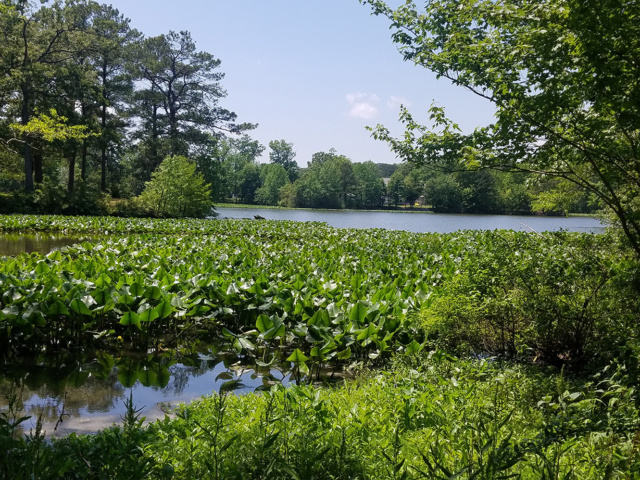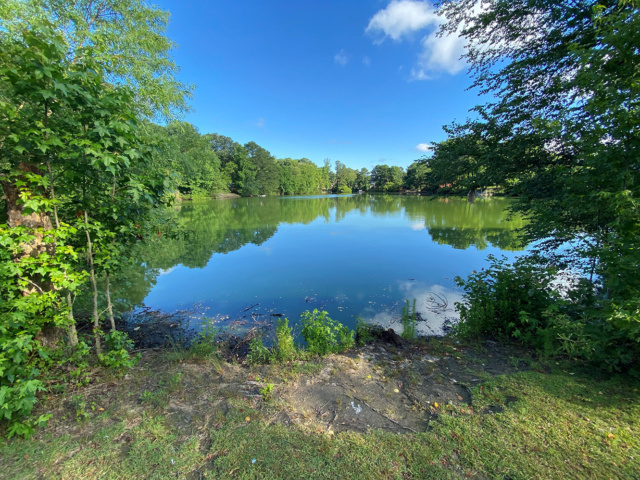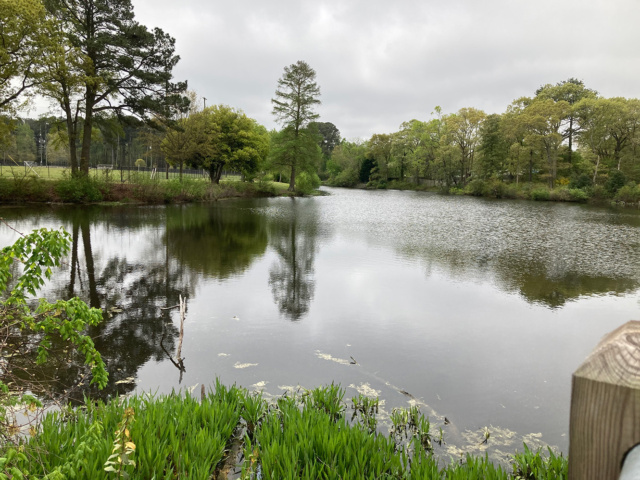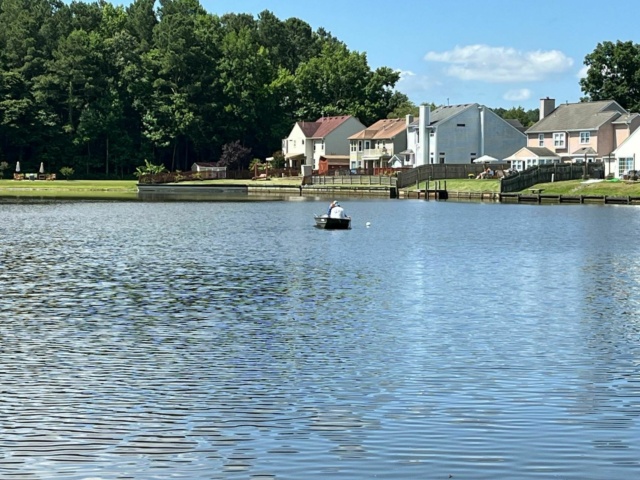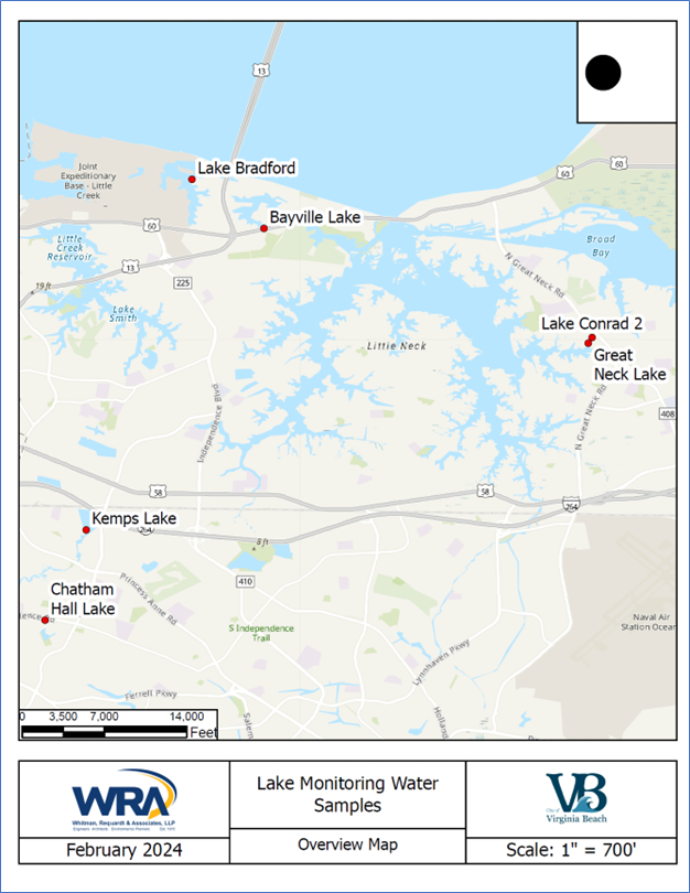The City has completed water quality monitoring and analysis at selected lakes to establish dry weather baseline water quality conditions for lakes and to investigate water quality concerns reported by residents. These studies are summarized below:
Holland Pines Pond Study
In response to the strong nuisance odor issues related to the pond during the fall of 2023, the Public Works Department performed a study to collect and analyze water quality and sediment data, investigate the potential causes of seasonal odor issues and fish kills, and identify long-term management strategies to reduce the odor issues and aquatic life loss.
The study included water quality monitoring from June 2024 through November 2024, capturing a range of seasonal conditions relative to rainfall and tidal conditions from West Neck Creek. Sampling was conducted in the pond’s water column and sediment, at the pond’s outfall, and at two locations along West Neck Creek. The results indicate that the pond develops two distinct layers.
The surface layer is about seven feet deep and has good water quality parameters to support aquatic life. The other is the bottom layer, which extends to a depth of about 20 feet that remains stagnant and separated from the surface layer. This bottom layer has poor water quality parameters to support aquatic life.
During spring and fall, when temperatures change rapidly, the water in the pond may mix in a natural process called lake turnover. This process brings the poor-quality water from the bottom to the surface. The study results confirmed that this turnover process is the cause of the unpleasant odors and fish kills.
A full report, finalized May 2025, details the study findings and recommended management strategies, and is available upon request. Reach out to the point of contact listed at the top of the page for more information or to request a copy of the study.
Water Quality Monitoring for Identified Lakes
The City has completed water quality monitoring and analysis at six lakes over a 15-month study period from July 2023 through September 2024. The main objective of the monitoring study was to establish the baseline water quality conditions during times when it’s not raining in these lakes.
The baseline water quality conditions for the lakes studied were found to be within the normal range of water quality parameters for urban freshwater lakes.
The City intends to develop a water quality monitoring plan to establish long-term water quality trends, which will be used along with the baseline conditions to support evaluation of the impacts of upstream stormwater management facilities on the water quality within the lakes and downstream waterways.
The monitoring and analysis included water depth measurement, water temperature, specific conductivity, pH, turbidity, dissolved oxygen, and nutrients. Dissolved oxygen is the direct indicator of water quality and the health of aquatic life. Additional information about the parameters can be found below.


